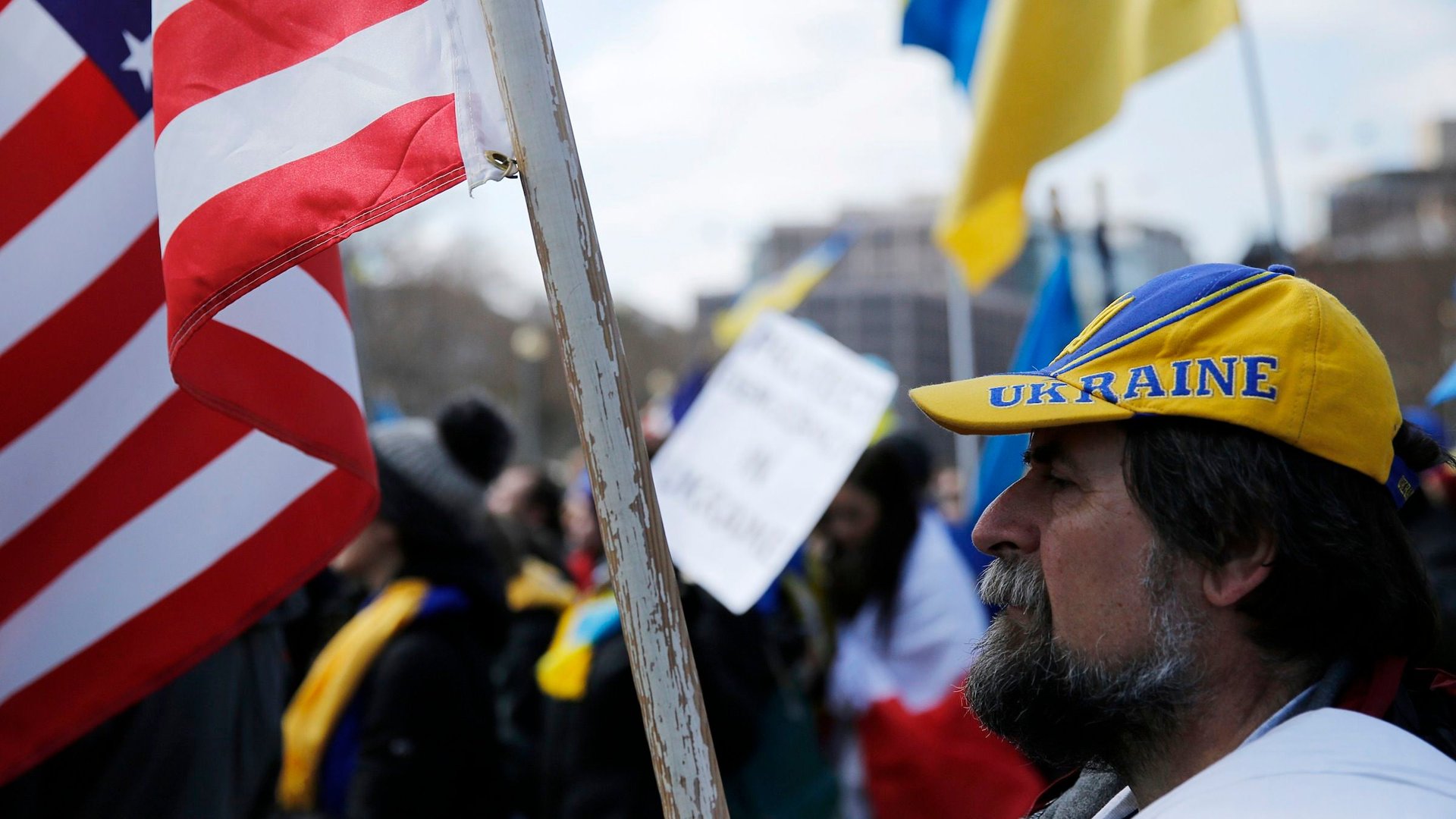Partisan squabbling in the US could cost Ukraine $600 million
This item has been corrected.


This item has been corrected.
The fight over Ukraine has spilled over into international finance—and Ukrainians could be caught in the middle of a partisan spat in the US.
Ukraine’s new government is desperate for some $15 billion in loans to rescue it from a tough economic situation and pressure from Russia. It is running out of foreign reserves to pay its bills, and it is dependent on imported petroleum. The US Senate is expected to vote this week on a bill that would guarantee a $1 billion loan to Ukraine, which would help it stand on its own two feet. But the bill is being held up over another institution where Ukraine is seeking help—the International Monetary Fund (IMF).
The economies that control the fund, under pressure from emerging markets of increasing economic heft, have decided to re-jigger the fund’s governance structure to give them more power. The US still preserves its all-important veto, but America’s Republican politicians, who aren’t too keen on international institutions, have refused to ratify the decision.
At the last G20 meeting, Russia’s delegation demanded an alternate plan to fund the IMF, one that eliminates the US contribution and its veto rights. It’s a not-so-veiled threat to lock the US out of a club that decides which troubled countries can get bailed out and by how much. “It’s a preposterous notion, but the US has been somewhat irresponsible in dragging their feet,” a former international finance official who is watching the process.
Ukraine is also scrambling to get funds from the IMF right now. The IMF’s Rapid Financing Instrument is designed to provide cash to countries with urgent financial problems, but it only can give Ukraine $1 billion—an additional $600 million, however, would be unlocked by the passage of the reforms, a Treasury spokesperson confirmed today. The Obama administration is therefore pushing for the Ukraine aid bill before the Senate to include ratification of the IMF reform. After all, the former official says, lawmakers are “tripping over themselves to find ways to be supportive of Ukraine and voice our displeasure with Russia.”
But, according to the former official and a lobbyist in the capital, Republican leaders won’t overrule a rank-and-file that is skeptical of global finance unless the president agrees to a quid pro quo. Their demand: that he block new rules that would limit how much money non-profit groups can spend to influence political races without disclosing their donors. This is the same deal Republicans offered when the IMF reforms were under consideration earlier this year. And it’s all-important to Senate Republicans who hope to wrest control of the chamber from the Democrats in elections later this year, since it will let them drum up outside spending without revealing where it came from.
What it comes down to, then, is what’s more important to both parties: boosting Ukraine and pushing back against Russian influence, or controlling the legislature in 2015. Any bets?
Correction (March 12): An earlier version of this article incorrectly stated that US ratification of IMF reforms would allow Ukraine to access the RFI; the passage of the reforms would simply increase the amount of money Ukraine could access through the instrument.